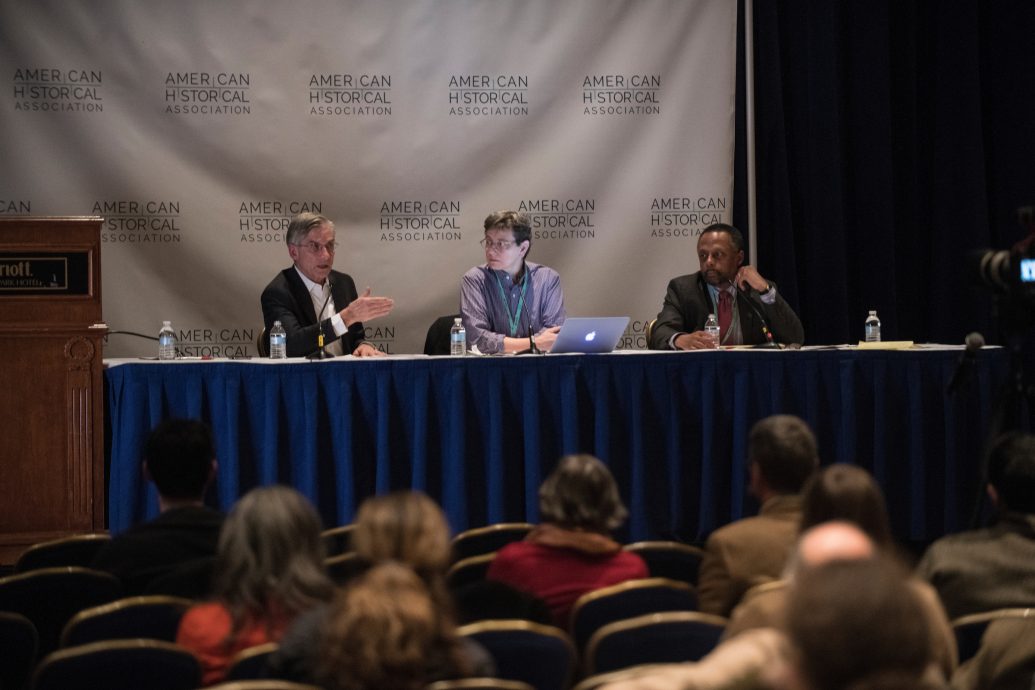How the University of Austin Can Change the History Profession
Several weeks ago the founding of a new university in Austin, Texas, known as UATX, was announced. The goal of the new university, its founding president proclaimed, was to challenge America’s “broken” university culture by engaging in “the fearless pursuit of truth.” The reaction from the mavens of higher education, predictably, ranged from derision to outrage. A frequent criticism was that the new university was a “political project,” which is a bit like the Vandal Kingdom complaining about infringement of property rights. Whatever other qualities American academics may have, self-awareness isn’t one of them.
My own doubts were about the viability of the project. A new university would not be able to challenge the prevailing system without establishing prestigious graduate programs. These are notoriously hard to establish in new universities. Universities in general seem to possess in extreme form a first mover advantage that provides them with extraordinary protection from competition. Oxford and Cambridge were Britain’s first universities when they were founded in the twelfth century. They are still its best. Ditto the University of Paris, est. 1215. Ditto my own institution, Harvard University, founded in 1636, and still leading the pack. The Ivy League is not accepting new entrants, and the rankings among the top public research universities have hardly changed in half a century.
While I was pondering these deep truths, there thumped into my mailbox the program for the 135th Annual Meeting of the American Historical Association (AHA) to be held at New Orleans this January. The program lists some 290 sessions that collectively provide a snapshot of what professional historians in this country are studying. Leafing through its pages, I suddenly realized that there was a way, after all, that UATX could quickly come to occupy a leading role in graduate education: through its proposed Center for Politics and Applied History.
We historians never like throwing out printed matter—it’s “documentation” we tell our spouses—and I was able to dig out a copy of the 1992 Program for the 107th Annual Meeting of the AHA. Comparing the two documents brought into sharper focus how my profession had changed in the last three decades. I could tabulate the kinds of studies that are now fashionable and those that had fallen by the wayside.
One clear change was the coverage of what my colleagues call the “deep past,” meaning anything that happened before 1700. In 1992, 17% of sessions were devoted to the deep past, in 2022 only 8%. History as it is done in 2022 is almost entirely devoted to the history of the 20th and 21st centuries.
The profession today is not only shallower historically, it is much more international. I expected that, but until I started counting sessions, I had not been aware of the dominance of Latin American history, now a close second to U.S. history. In 1992, it lagged behind its rivals in “area studies,” and way behind European history, then still a high-prestige subject. Now European history is an “area study.” The end of the Cold War and the abatement of the War on Terror has caused Russian and Near Eastern history to lose market share. African history, barely represented in 1992, is still looking for A-round investors.
I wasn’t surprised, of course, by the enormous growth since 1992 of women’s history. Women’s history has made up the largest subfield in the profession for over a decade, and since 2015 specialists in that field have numbered 10% of all historians. Historians today are also much more interested in gender, gay, and trans history as well as the history of race and ethnicity. A good third of the 2022 sessions are given over to such subjects. No surprise there. Also much more prominent today, for obvious reasons, are the histories of migration, climate change, and (a new entrant since 2019) epidemic diseases.
Nevertheless, and whatever our personal enthusiasms as historians, the country still needs leaders who know about the history of politics, institutions, law, diplomacy, and economics.
What is most striking to me, however, comparing the two documents, is the sharp decline in the study of what used to be the heart of historical study: political, institutional, military, and diplomatic history. There are still a few sessions dedicated to these subjects, but their presence seems vestigial. Often the sessions devoted to them are defensive in tone, with titles like “Not a Dead Man’s Tale: The Future of Military and Diplomatic History in Academia.” Economic history is on the skids too. There is only one session devoted to business history, plus a few to labor history, approached from a Marxist perspective. There are no sessions at all on the history of finance or the history of economic thought. There are surely historians studying these subjects—mostly in departments of economics or in think-tanks—but the history profession shows little interest in their work. Academic jobs in those fields are scarce.
Here, it would seem, is an opportunity for UATX to occupy a large and important market niche. The subjects now slighted in American history departments, after all, are no slight part of history. They used to be thought vital to the training of future leaders. Political leaders, we used to believe, would lack practical wisdom if they didn’t know the political and constitutional history of their own nation-state. They would not be able to run public or private institutions without a good grasp of legal and institutional history. They would lack far-sighted wisdom unless they studied the deeper past, pondering Plutarch and Thucydides. Generals could not lead armies without knowing the history of war, and future diplomats needed to master the history of foreign relations. Tomorrow’s leaders in business and finance would need to know how to analyze economies and industries in concrete historical terms, not just through the lens of abstract economic theory.
Good luck trying to learn about any of these subjects in American history programs these days. History professors aren’t interested in them because there are no jobs in these fields for their PhDs. Also—and this may surprise the layman—we historians are as obsessed with academic fashion as Miranda Priestly is with haute couture. We don’t want to seem stodgy and old-fashioned to our colleagues. We are as afraid to miss out on the latest trends as teenagers on TikTok.
Nevertheless, and whatever our personal enthusiasms as historians, the country still needs leaders who know about the history of politics, institutions, law, diplomacy, and economics. UATX could do the country a large favor by rebuilding the subfields dilapidated by professional historians. By founding a high-quality graduate program in history, it could help form our country’s future leaders, teaching them how to apply the lessons of history to practical problems faced in government and business. It should be relatively easy to establish a “brand” in these subjects, since UATX is not likely to get much competition from the progressive university.
If history teaches anything, it teaches that things never remain the same. The wheel of history is going to turn again, perhaps quite soon, and new parties and new leaders with fresh ideas about good government will come into office. When they do, they are going to need competent staff with the kind of high-level problem-solving skills that the serious, analytic study of history provides. To hazard a prediction, future administrations and the most innovative companies of tomorrow will not have much need for foot soldiers trained in the latest social justice crusade. When the wheel does turn again, a degree from UATX could turn out to be an extremely valuable asset.



